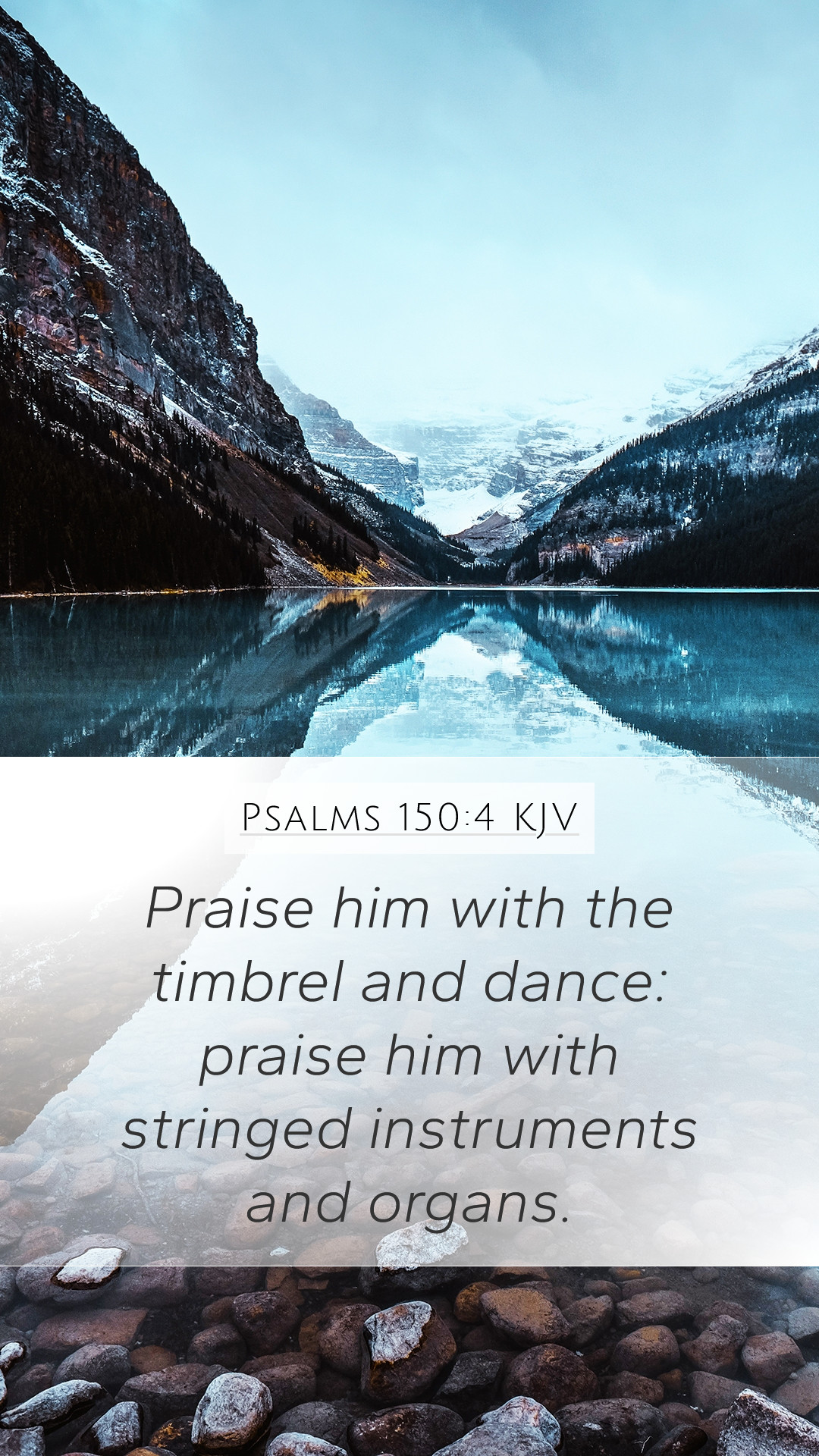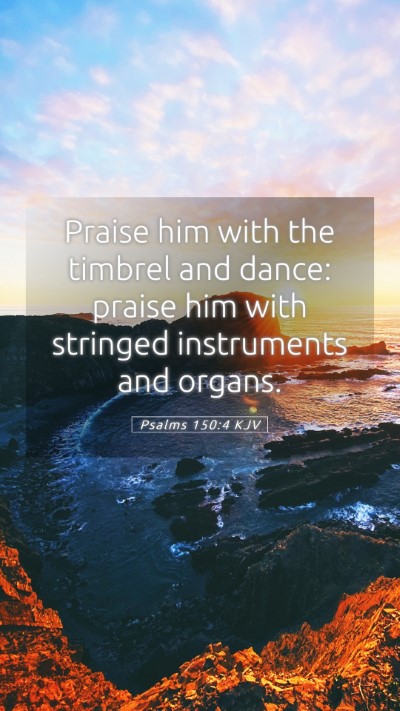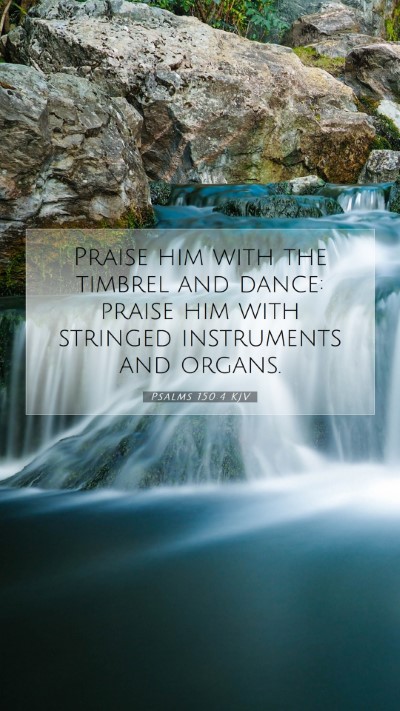Psalms 150:4 - Understanding the Praise in the Psalms
Bible Verse: Psalms 150:4 - "Praise him with the timbrel and dance: praise him with stringed instruments and organs."
Overview of Psalms 150:4
Psalms 150:4 is a vibrant call to worship, emphasizing the importance of expressing praise to God with physical and musical exuberance. In this context, it serves as the climax of the Book of Psalms, summoning every form of artistic expression as a means to glorify the Lord.
Interpretation from Public Domain Commentaries
-
Matthew Henry:
Henry highlights that this verse illustrates the bounds of praise by urging us to use various instruments—a symbolic representation of the creation responding to the Creator. The "timbrel" and "dance" signify joy and celebration, while "stringed instruments and organs" represent skill and harmony in our worship. This multifaceted approach to praise captures the heartfelt response of believers towards God's greatness.
-
Albert Barnes:
Barnes sees this verse as an encouragement to incorporate diverse musical expressions in worship, asserting that musical instruments amplify the praises we offer to God. He notes that the timbrel and dance were associated with joyous occasions, highlighting the need for worship to reflect the joy found in faith. The "stringed instruments and organs" symbolize the depth and richness of sound that can be produced, suggesting that worship should engage our full creativity and commitment.
-
Adam Clarke:
Clarke provides insights regarding the choice of instruments and the act of dancing, indicating that these forms are not mere traditions but rather cultural expressions of joy and reverence. He emphasizes that the verse advocates for a celebratory approach to worship, contrasting the somberness often associated with religious expressions. The call to praise involves not just vocal or silent adoration but also involves the use of art and emotion to uplift the spirit towards God.
Significance of the Verse
Psalms 150:4 speaks to the communal and individual dimensions of worship, emphasizing that every believer is encouraged to partake in praising God through various mediums. It invites reflection on how we engage in worship and the diverse ways that can manifest, highlighting that God's creation—humans included—should be part of His praise.
Applications of Psalms 150:4
This verse may be applied in various aspects of worship in our daily lives:
- Incorporating Arts in Worship: Obey the call to extensive participation in worship by exploring music, dance, and other forms of art in our services or personal devotions.
- Emotional Engagement: Understand that emotions have a place in worship; expressing joy through physical movement can deepen our connection to God.
- Encouraging Community Worship: Promote inclusive worship experiences that embrace different expressions of faith within congregations.
Cross References
- 2 Samuel 6:14: "And David danced before the Lord with all his might; and David was girded with a linen ephod." - This verse supports the idea of dance in worship.
- Psalm 149:3: "Let them praise his name in the dance: let them sing praises unto him with the timbrel and harp." - Similar themes of praise through dance and instruments.
- Psalm 100:1-2: "Make a joyful noise unto the Lord, all ye lands. Serve the Lord with gladness: come before his presence with singing." - Celebratory worship established.
Conclusion
In summary, Psalms 150:4 is not merely an instruction but an invitation to engage in joyful and diverse expressions of worship. It reflects the importance of including both art and emotion in our relationship with God, encouraging believers to participate fully in glorifying Him.
Further Study Resources
For those interested in exploring more about worship and praise in the Bible, consider the following approaches:
- Join Bible study groups that focus on worship practices.
- Utilize online Bible study tools to find musical expressions of faith.
- Read Bible study guides dedicated to the Book of Psalms for deeper insights.


